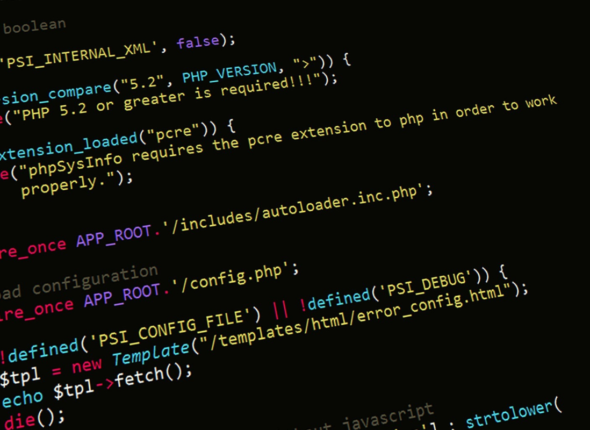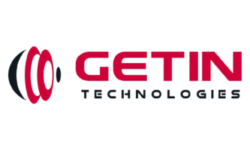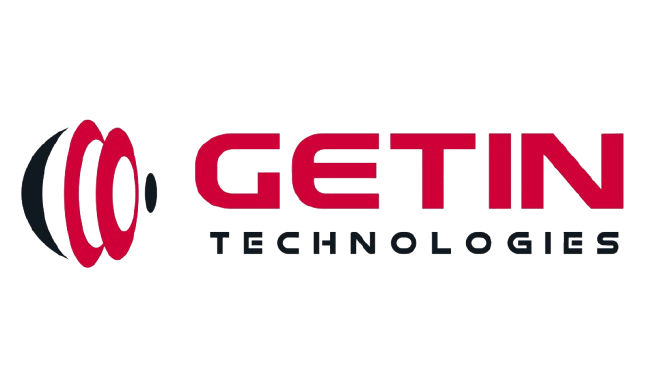World
Class Instructor
1:1 with
Industry Expert
400+
Global Hiring
55%
Avg. Salary Hike
- Overview
- Course Details
- Syllabus
- FAQ
Looking for AWS DevOps training in Virudhunagar? Getin Technologies offers industry-focused AWS DevOps courses designed for beginners and professionals. Our expert trainers provide hands-on experience in AWS, CI/CD, Docker, Kubernetes, Jenkins, Terraform, and more. Learn to automate deployments, manage cloud infrastructure, and optimize DevOps workflows. Our structured curriculum, real-time projects, and placement assistance ensure career growth. Join the best institute for AWS DevOps training in Virudhunagar and kickstart your journey to becoming a certified DevOps professional, all while receiving expert guidance and gaining valuable hands-on experience.
Our Highlights
- Industry-Expert Trainers
- Comprehensive Curriculum
- 100% Practical Training
- Placement Assistance
- Flexible Learning Options
- Affordable Fees with Certification
- Career-Focused Training
- Personalized Mentorship
What you will Learn?
- AWS Fundamentals & Cloud Computing – Understand AWS architecture, services, and cloud deployment models.
- CI/CD Pipelines & Automation – Master Jenkins, Git, Docker, and Kubernetes for continuous integration and deployment.
- Infrastructure as Code (IaC) – Learn Terraform and AWS CloudFormation for automated infrastructure management.
- Monitoring & Security – Implement AWS CloudWatch, AWS IAM, and security best practices for DevOps environments.
- Real-Time Projects & Hands-on Labs – Gain practical experience by working on live projects, preparing for AWS DevOps certification and job opportunities.
Reasons to do AWS DevOps Course

High Demand

Salary

Job Ready Skills
AWS DevOps Training Module 1
Linux + AWS + DevOps
Total Course Duration: 75 Days
AWS DevOps Training Module 2
Linux + AWS + DevOps + Kubernetes + Python
Total Course Duration: 105 Days
AWS DevOps Course Overview
Getin Technologies offers a comprehensive AWS DevOps training program designed to help you master cloud automation, continuous integration, and deployment using AWS tools. This course covers key DevOps practices, including CI/CD pipelines, Infrastructure as Code (IaC), containerization, and cloud monitoring. You’ll gain hands-on experience with Jenkins, Docker, Kubernetes, Terraform, Ansible, AWS CloudFormation, AWS Lambda, and more. Our expert-led training ensures in-depth knowledge of AWS DevOps services and industry best practices. This AWS DevOps training in Virudhunagar offers hands-on projects, guidance for certification, and job placement assistance tailored for IT professionals looking to excel in cloud and DevOps.
Future Scope for AWS DevOps Developer
- High Demand & Lucrative Careers – AWS DevOps professionals are in high demand, with competitive salaries and growth opportunities in top IT companies.
- Cloud Adoption Growth – With businesses shifting to cloud infrastructure, AWS DevOps skills are crucial for automation and scalability.
- Diverse Career Paths – Opportunities in DevOps Engineering, Cloud Automation, Site Reliability Engineering (SRE), and Solutions Architecture.
- Continuous Innovation – AWS constantly introduces new tools, ensuring a dynamic and evolving career in DevOps.
- Global Job Opportunities – AWS DevOps professionals are sought after worldwide, opening doors to remote and international job roles.
What will you Learn ?









Module 1 - Linux Fundamentals (5 Days)
Installation and Initialization
- Installation, Package Selection
- Anatomy of a Kickstart File, Command line
- Introduction to Bash Shell
- System Initialization, Starting the Boot Process: GRUB
Boot and Package Management
- Configuring services to run at boot
- Securing single-user mode (SU login)
- Shutting down and rebooting the system
- RPM Package Manager, Installing and Removing Software, Updating a Kernel RPM
- Yum Command set, Install packages by using yum
- Apt-get command set, Apt-cache package management
User Administration
- Understanding different types of groups and creation of groups
- Creation of users in different groups
- Understanding Passwd, Shadow Files
- Understanding password aging
- Creation of quotas for users, groups and file systems
- Understanding users security files
- The different commands for Monitoring the users
- TROUBLESHOOTING
- Automation of jobs – Cron, at
Run levels
- Understanding the different types of run-levels
- Understanding different types of shutdown commands
- Understanding run control scripts
- Understanding the different types
Overview of the Service Protocols
- FTP
- DHCP
- DNS
- Apache
- Samba
- LVM
Why Cloud ?
- Why Cloud and What is Cloud Computing?
- Identify the features and benefits of cloud computing
- Different types of Cloud Computing deployment model
- Public Cloud, Private Cloud, Hybrid Cloud
- Virtualization – An essential in cloud
- Virtualization in Cloud model
- Different types of virtualization
- Hypervisor – Benefits
- Different types of services and its difference in Cloud computing
- IaaS, PaaS, SaaS
- Importance of scaling in cloud computing
- Different types of scaling and its applications
- Issues we overcome using cloud and applications
- Cost model that we use in cloud computing
Module 2 - AWS (30 Days)
AWS – An overview
- Describe the features of AWS
- The features of AWS marketplace
- Describe the features of Amazon Compute Services
- Describe the features of Amazon Storage Services
- Describe the features of Amazon Network Services
- Describe the features of Amazon Database services
- Describe about various services in AWS
- Global Infrastructure – Regions and Availability Zones
- Create a free tier account in AWS and onboarding
- Introduction AWS management console
Understand Identity Access Management (IAM) of AWS
- Protect your AWS by different authentication system
- Password policies set for users
- AWS User Account and Groups in detail
- Creating custom policies in AWS
- Introduction about Roles and its use
- Creating Roles and associating policies
- Creating programmatic access and management console access for users
- Associating policies to the user and groups
EC2 Instance
- Describe AMI and AWS Marketplace templates
- Launch a basic EC2 instance
- Different types of Instances Reserved, On-demand, Spot, Dedicated
- Security groups and tags for EC2 instance
- Public key – Private key introduction and protecting EC2 with keys
- Attaching and detaching EBS volumes
- Launch an ec2 instance from an AMI
- Create custom AMI and working with different region
- Make use of amazon EBS volume and create snapshots
- Manage the configuration of your application
- Deploying a new instance from the created AMI
Auto-scaling
- Get Started with Auto Scaling Using the Console
- Creating Launch configurations and make use of it for autoscaling groups
- Maintain a Fixed Number of Running EC2 Instances
- Dynamic Scaling
- The lifecycle of autoscaling
- Policies of autoscaling
Load Balancing
- Introduction to Loadbalancer (ELB)
- Different types of Load Balancer in AWS
- Application Load balancer
- Network Load balancer
- Classic Load balancer
- Migrating classic load balancer to new load balancer
- Components and types of load balancing
EBS (Elastic Block Storage)
- Create EBS volumes
- Delete EBS Volumes
- Attach and detach EBS volumes with EC2 instance
- Creating and deleting snapshots
Object Storage in Cloud
- Understanding S3 durability and redundancy
- Introduction about S3 Buckets
- How S3 Uploading works and how to Download
- How to S3 Permissions
- How to implement S3 Object Versioning S3 Lifecycle Policies
- Storage Gateway
- Import Export
- S3 Transfer Acceleration
- Glacier storage
CloudFront
- Describing cloud front
- Creating a cloud front distribution
- Hosting a website of cloud front distribution
- Implementing global restrictions
- Configuring origins and behaviors
Route 53
- Describe Hosted zones and Domain name understanding
- How to create hosted zones
- Hosting a website with custom domain name
- Understanding routing policies
AWS Security Management
- Describing Security Practices for Cloud Deployment
- AWS Shared Responsibilities and Securities
- Importance of Cloud Trail
- Describing Trust advisor
Amazon Virtual Private Cloud (VPC)
- Introduction to Amazon Virtual Private Cloud (VPC).
- VPC Advantages and understanding IP addressing CIDR
- Default and Non-default VPC
- Different Components in VPC
- Describe, create, and manage Amazon Virtual Private Cloud
- Amazon VPC, Private Subnet, and Public Subnet
- AWS Networking, Security Groups, and Network ACLs
- Configuration and management of VPN connectivity
- Subnet and Subnet Mask
Relational Database Service (RDS)
- Introduction to RDS
- Different database services of AWS: Amazon RDS, Dynamo DB, Redshift
- Create MYSQL RDS Instance, Oracle RDS Instance, MS SQL RDS Instance
- Configuring the database
- Configuring backups
- Configuring the maintenance windows
- Connecting to the database
DynamoDB
- Creating a dynamo dB
- Adding data manually
- Learn about strong and eventual consistency
- Calculating Read write consistency
- Configuring alarms
Monitoring Services
- Knowledge on Cloud watch – A monitoring service
- Create and Configuring Monitoring services
- How to perform Setting thresholds and Configuring actions
- Creating a cloud watch alarm
- Getting statistics for ec2 instances
- Monitoring other AWS services
- Configuring Notifications
- Integrating cloud watch with Autoscaling
Application Services – An Overview
- What is SNS
- Creating a topic
- Create subscription
- Subscribed to the subscription
- SQS & SES
- Lambda and Elastic Beanstalk
AWS Troubleshooting
- Troubleshooting EC2 instance
- Troubleshooting using Cloud watch
- Troubleshooting using ELB
- Troubleshooting by using Cloud front
AWS Architecture and Design
- Backup and Disaster Recovery
- How to manage Disaster Recovery and Backups
- Best Practice for DR and Backups
- AWS High Availability Design
Module 3 - DevOps (40 Days)
Introduction to DevOps
- History of DevOps
- DevOps principles
- Benefits of DevOps
- DevOps tools and
Source Code Management:
- GIT
- GITHUB
Continuous Integration and Continuous Deployment
- Jenkins
Configuration Management
- Ansible
Containerization
- Docker
Monitoring and Logging
- Splunk
- Prometheus
Infrastructure Automation
- Terraform
Case studies and projects
- Real-world use cases of DevOps principles and practices, and projects to apply what you have learn
Agile and DevOps:
- Agile methodologies
- Agile and DevOps integration
- Agile
Case studies and projects
- Real-world use cases of DevOps principles and practices, and projects to apply what you have
Module 4 - Kubernetes (15 Days)
Kubernetes Introduction
- Kubernetes Evolution
- What is Kubernetes ?
- Use Cases of Kubernetes
- Working of Kubernetes
- Installation of Kubernetes
Kubernetes – Architecture
- Understanding Kubernetes Architecture
- What are Kubernetes objects
- What are YAML files?
- Kubernetes Master Introduction
- Components of Kubernetes Master
- Node Components Introduction
Pods and Services
- What are Pods?
- What is deployment
- What are replication controller
- stateful and demon sets
- Introduction to Kubernetes services and its types
- Jobs
- Horizontal Pod Autoscaling
- Load Balancing
- Rolling Updates
Volumes
- What are volumes?
- Types of volumes
- Persistent volumes
- Introduction to secrets
- Taints and tolerations
- Managing stateful application
Kubernetes – Autoscaling
- Auto Scaling Introduction
- The Horizontal Pod Auto scaler
- The Kubernetes metrics registry
- Exposing metrics from your apps
- Installation and configuration Prometheus
- Understanding custom and external metrics adapters
- Tuning the Horizontal Pod Auto scaler
Logging & Monitoring
- Monitor cluster using Prometheus
- Visualize logs using EFK stack
- Deploy jobs to run tasks to completion
- Manage etcd cluster
- Use Helm Charts
Module 5 - Python (15 Days)
Introduction to Python
- What are Python and the history of Python?
- Unique features of Python
- Install Python and Environment Setup
- First Python Program
- Python Identifiers, Keywords, and Indentation
- Comments and document interlude in Python
- Command-line arguments
- Getting User Input
- Python Data Types
- What are the variables?
Control Statements
- If
- If-elif-else
- while loop
- for loop
- Break
- Continue
- Assert
- Pass
- return
List, Ranges & Tuples in Python
- Introduction
- Lists in Python
- Generators and Yield
- Generators Comprehensions and Lambda Expressions
- Next() and Range()
- Understanding and using Range
Python Dictionaries and Sets
- Introduction to the section
- Python Dictionaries
- More on Dictionaries
- Sets
Python built-in function
- Python Modules & Packages
- Python User defined functions
- Defining and calling Function
- The anonymous Function
Python Object Oriented
- Overview of OOP
- Creating Classes and Objects
- Constructor
- The self variable
- Types Of Variables
- Namespaces
- Inheritance
- Types of Methods
- Instance Methods Static Methods Class Methods
- Accessing attributes
- Built-In Class Attributes
- Destroying Objects
- Abstract classes and Interfaces
- Abstract Methods and Abstract class
- Interface in Python
- Abstract classes and Interfaces
Our Career Service

Job Assistance

Interview Based Training

Expertise and Knowledge

Interview Preparation

Resume Profile Building

Support and Guidance
Who can enroll in AWS DevOps training in Virudhunagar?
Anyone interested in cloud computing and DevOps can join, including freshers, IT professionals, system administrators, and software developers.
What are the key skills covered in this AWS DevOps course?
The course covers AWS services, CI/CD pipelines, Docker, Kubernetes, Terraform, Jenkins, Ansible, and Infrastructure as Code (IaC).
Is there placement assistance after AWS DevOps training?
Yes, we provide resume building, interview preparation, and job placement support to help you start your career in AWS DevOps.
Do you offer certification guidance for AWS DevOps?
Yes, our training includes AWS Certified DevOps Engineer – Professional certification preparation with expert guidance.
How can I enroll in AWS DevOps training at Getin Technologies?
You can contact us via phone, email, or visit our Virudhunagar training center for a free demo session and course enrollment.
Will I receive a certification after completing the course?
Once you finish the AWS DevOps training in Virudhunagar, you'll get a course completion certificate, plus some helpful tips for obtaining your AWS DevOps certification.
What topics are covered in the AWS DevOps training?
The AWS DevOps training in Virudhunagar covers a range of essential topics, including:
- AWS Fundamentals
- CI/CD using Jenkins and AWS CodePipeline
- Infrastructure as Code with Terraform and CloudFormation
- Monitoring through AWS CloudWatch
- Security and Compliance in AWS
What are the training modes available?
Well, AWS DevOps training in Virudhunagar offers both classroom and online formats, so you can choose what works best for you!
- AWS Devops Training Course
- Duration: 105 Days
- Level: Beginner
- Language: English
- Certification: Yes
Job Roles
- DevOps Engineer
- AWS Solutions Architect
- Cloud Engineer
- Site Reliability Engineer
- CI/CD Pipeline Engineer
Outcome of AWS DevOps Training in Virudhunagar

Cloud Infrastructure Expertise
Gain hands-on experience in designing, deploying, and managing scalable cloud infrastructure using AWS services and automation tools.

AWS Tools Proficiency
Master essential AWS DevOps tools like Jenkins, Docker, Kubernetes, Terraform, Ansible, AWS CloudFormation, and more for efficient cloud operations.

Mastery of CI/CD Process
Learn to implement Continuous Integration and Continuous Deployment (CI/CD) pipelines, automating software development and delivery workflows.

Problem Solving
Enhance your analytical skills to troubleshoot, optimize, and automate cloud-based applications and DevOps workflows effectively.

Certification Readiness
Prepare for AWS Certified DevOps Engineer – Professional with expert training, real-world projects, and in-depth knowledge of AWS services.

Better Career Prospects
AWS DevOps expertise opens doors to high-paying jobs in cloud computing, automation, and DevOps engineering globally.
Who Should Take This AWS DevOps Training in Virudhunagar?
- IT Professionals & Cloud Engineers
- System Administrators & DevOps Engineer
- Software Developer & Automation Engineer
- Anyone wishing to develop knowledge in AWS DevOps
Related Courses
PHP Training
PHP Training is designed to equip learners with the skills to develop dynamic web applications, covering syntax, database integration, server-side scripting, frameworks like Laravel for secure coding.
Dot Net Training
.NET Training equips learners to develop robust applications using the .NET framework, including C#, ASP.NET, MVC, and database integration, cloud services, and full-stack development techniques.
Java Fullstack Training
Java FullStack Training equips learners with skills in front-end, back-end, and database development using Java technologies, fostering expertise in frameworks like Spring, Hibernate.








